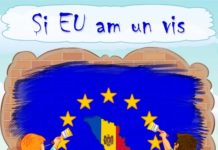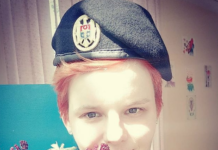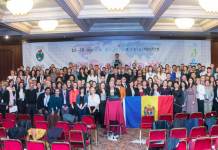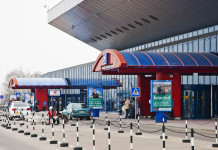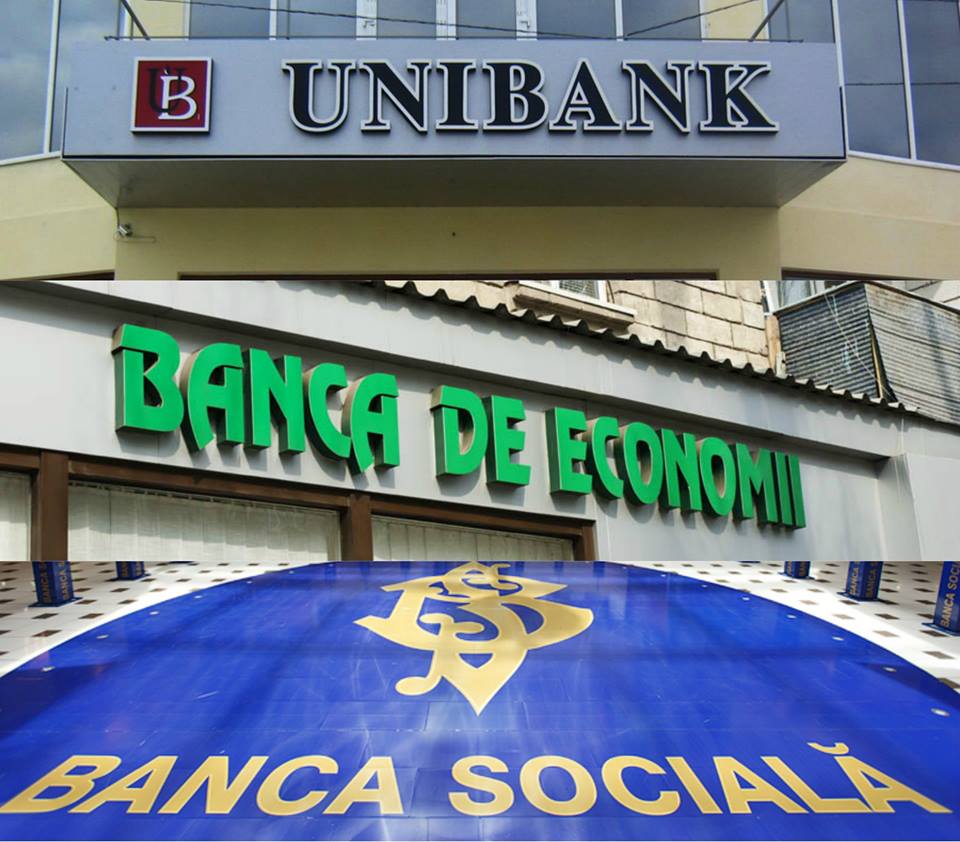 As tensions between the U.S. and Russia escalate, several countries of the former Soviet Union are caught in the middle. Ukraine, Georgia, and a small country of Moldova, sandwiched between the NATO member Romania and Ukraine, are an example of countries in the geopolitical limbo, reports The Hills Publication.
As tensions between the U.S. and Russia escalate, several countries of the former Soviet Union are caught in the middle. Ukraine, Georgia, and a small country of Moldova, sandwiched between the NATO member Romania and Ukraine, are an example of countries in the geopolitical limbo, reports The Hills Publication.
With Moldovan presidential elections looming in October, the implications of the vote will go well beyond the borders of that small and impoverished land. As during the Cold War, Russia and the U.S. are once again locked in a twilight struggle over the Eastern European turf. Being a monkey in the middle is dangerous for a small and impoverished county’s well-being, with the deck stacked against it.
Above all, state capture by a small circle of oligarchs is stalling economic development. The corrupt few control political parties, the legislative and the executive branches, the media, the law enforcement, and the judiciary. This is no Jeffersonian democracy.
The epitome of the oligarchic lawlessness was an alleged complex financial fraud committed mostly in late November 2014. So bold was the $1 billion “theft of the century”, that even reserves of the Central Bank of Moldova, partially provided by the IMF, were allegedly embezzled.
Then-Prime Minister Vlad Filat, his ally, 27-year-old financier Ilan Shor, and a banker by the name of Vladislav Platon — all in Moldovan custody today — were involved. So apparently were the highest levels of the law enforcement.
The IMF has stopped its support of Moldova in November of 2015, knowing that a toxic and apparently criminal environment makes the organization’s work there impossible. However, this July, before the banking system has been cleaned up, the IMF has reached a staff agreement to provide Chisinau with a $179 million tranche.
The IMF funds that disappeared in the Moldovan bank heist belong to the governments of the principal IMF shareholders, including the US, and the EU members. However, other, the Moldovan banking system has been involved in other, even murkier dealings.
Russian organized crime, Middle Eastern dictators such as Muammar Ghaddafi’s entourage, and senior Putin Administration officials have used Moldovan banks to launder up to $20 billion. This is over three times more than the country’s GDP of $6,5 billion.
For example, the recently fired senior Putin Administration silovik (“man of power”) Andrey Belyaninov, who was the customs chief, was connected to this nexus of corruption and politics. His close associate Sergey Lobanov reportedly owns a large minority stake in Victoria bank, which until 2011 was chaired by Vladimir Plahotniuc, the Deputy Chairman and de-facto leader the ruling Democratic Party.
Plahotniuc was described by Forbes magazine as the number one economic and political wheeler-dealer, and who was denied a Prime Ministerial appointment by President Nikolae Timofti. The least popular politician in the country, Plahotniuc claims to be the interface of his country’s international dealings, including with the U.S. State Department.
Lt.-Col. Mihail Gofman, a senior Moldovan law enforcement whistle blower, who is cooperating with the US Government investigation, has fingered him as the pivotal figure in the sordid story of the Moldovan oligarchic state capture, including the bank heist. “Plahoniuc controls his kitchen cabinet, including State Prosecutor Eduard Horunjen and Viorel Chetraru, Director General of the Anti-Corruption Center”, Gofman says.
“They are behind the bespoke arrests and Stalinist intimidation tactics, like prosecution of family members”, Gofdman adds. His own brother is prosecuted, and so is the brother of Andrey Nastase, a pro-Western presidential candidate, who recently visited Washington.
With presidential elections looming, it is time to act. The Moldova conundrum is multilateral and complex, as it involves strategic, financial, and criminal challenges across numerous jurisdictions.
The IMF should suspend its assistance and investigate the disappearance of its funds in the “bank heist of the century” until the stolen money is located in off shore accounts and returned to the country.
U.S. Government should have an interagency law enforcement and anti-money laundering task force expand its investigation to examine the Russian money laundering ties of Moldovan politicians and oligarchs, including interviewing the former PM Filat, the banker Ilan Shor, and Plahotniuc’s ex-business associate Vlad Platon.
Finally, with the evidence of high level involvement of the Moldovan bankers, politicians and oligarchs in the “heist of the century” and suspected complicity in massive money laundering, U.S. Congress may consider imposing personal sanctions on the culprits, including travel bans and asset freezes.
The majority of Moldovans wants to be a part of the Euro-Atlantic space, but they are tired of the oligarchs stealing their country blind. So should be the unsuspecting American taxpayers, whose money funded the IMF aid to Moldova.
The country needs western help to stand up to Moscow, which loves to swim on the murky swamp of post-Soviet corruption. This includes NATO interoperability, the EU Associate status implementation, but also crime fighting assistance, the banking system clean-up, and systematic reverse of the oligarchic state capture that devastated Moldova.
Dr. Ariel Cohen – Director of the Center for Energy, Natural Resources and Geopolitics and a Senior Fellow at the Institute for Analysis of Global Security











